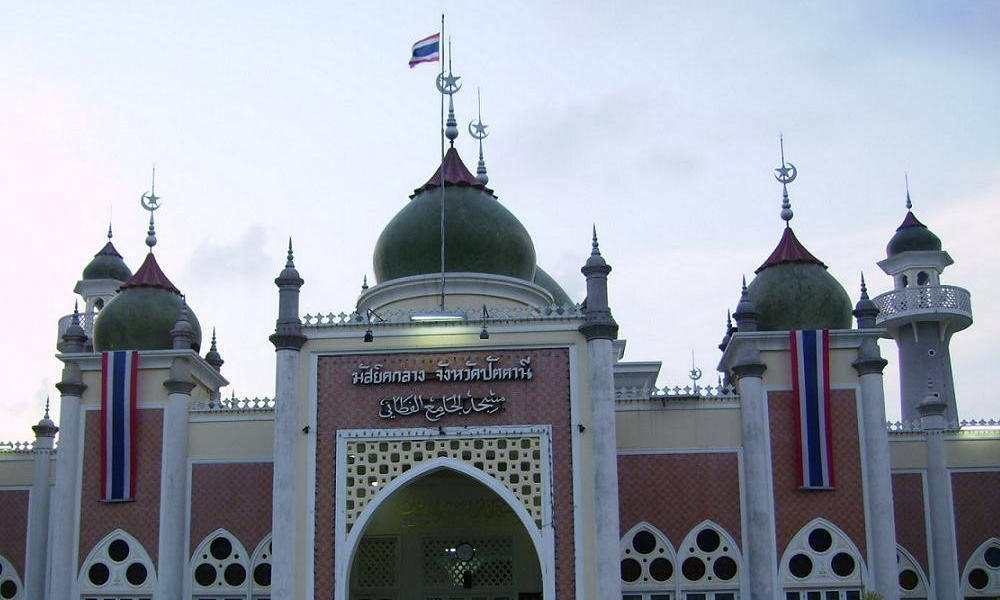
Most Malays, from either urban or rural areas, would attest to the adage from Hang Tuah: "Takkan Melayu hilang di dunia" (Malays will never disappear from this earth).
It is a good thing, a blessing even, that the community has such supreme confidence – especially since the state of the global economy is leaving everyone with the sinking feeling that they may never get to see tomorrow, especially if they lose their jobs.
But if one goes by the furore surrounding the Unified Examination Certificate (UEC) brought up during the (Rise of the Ummah) rally – both of which appear to suggest that Malays are losing ground – then one would have to ask if Hang Tuah’s thunderous proclamation still applies?
It should, because Hang Tuah is right. Malays will not disappear from this earth, ever.
There are five reasons for this. First of all, Malay is one of the most widely used languages in the world. Although it is no longer the lingua franca of Southeast Asia – supplanted and displaced by English – some 250 million people speak the language in Indonesia, Malaysia and Brunei.
With such numbers, Malay is the sixth most popular language in the world after Chinese, English, Spanish and Arabic.
Secondly, while Malays in Thailand have lost some of their ability to speak the language, it was Dr Mahathir Mohamad, no less, who pointed out that this does not imply the loss of the entire ethnic group.
The Malays in Pattani and Narathiwat, for example, are still proud of their Malay roots, and their Islamic fervour remains no less unstinting despite the language not being widely spoken anymore.

Although the conflict in southern Thailand may not be all about Malay identity politics –the International Crisis Group (ICG) once pointed out that 50 percent is due to local crime, while another 50 percent is due to true ethnic and religious fervour – it is important to remember that they still look to Malaysia with some degree of admiration and envy.
Third, Malays have a strong and binding relationship with Islam. Contrary to what the late Lee Kuan Yew of Singapore may have believed, that Malaysia and Indonesia can be the radical second front of Islamic extremism after the Middle East, there is little empirical evidence to suggest widespread radicalisation. Groups like Jemaah Islamiyah, though dangerous, remain in the minority throughout the Malay archipelago.
Fourth, to the degree that Malays in Malaysia do feel short-changed by local or national governments, such as with the endemic corruption of the previous regime, the fall back on religion has led them to seek counterparts in faraway places like war-torn Syria and southern Mindanao to nurse their psychological and psychic wounds.
Though the spectre of Sukarno’s (photo) Indonesia Raya or Greater Indonesia has not been raised, Malay nationalism and parochialism still remain strong. One naturally seeks strength in numbers, which Indonesia has in abundance when one feels that one is under attack.

But the truth is, they aren't. This is why past attempts to link with Indonesia have always failed, unless it is to enlist the help of Jakarta to build a stronger Asean.
No longer economic backwaters
Finally, Malaysia and Indonesia aren't really economic backwaters.
Economic growth is often twice the rate of the member states of the Organization of Economic Cooperation and Development (OECD). Malaysia was indeed considered one of the Asian tigers in the World Bank’s East Asia Economic Miracle Report in 1994, backed by Japan.
So why the noises and protests against the present government? One likelihood, or the only if one, is the soreness of losing the reins of the government.
The key culprit behind the laments and protests of UEC, for example, can only be the work of Umno – even though the party itself had once promised to recognise their entry requirements into the civil service, with the proviso that the students have at least a credit in their SPM Bahasa Malaysia.
The truth is Malaysia is all the better because of the strength and confidence of the Malays, and the beauty of the Malay language.
Without the two existing in tandem, the Malay world would have overindulged on every foreign influence, given the intersection of Malaysia as the meeting point of trade winds.
PHAR KIM BENG is a Harvard/Cambridge Commonwealth Fellow, a former Monbusho scholar at the University of Tokyo and visiting scholar at Waseda University. - Mkini



No comments:
Post a Comment
Note: Only a member of this blog may post a comment.